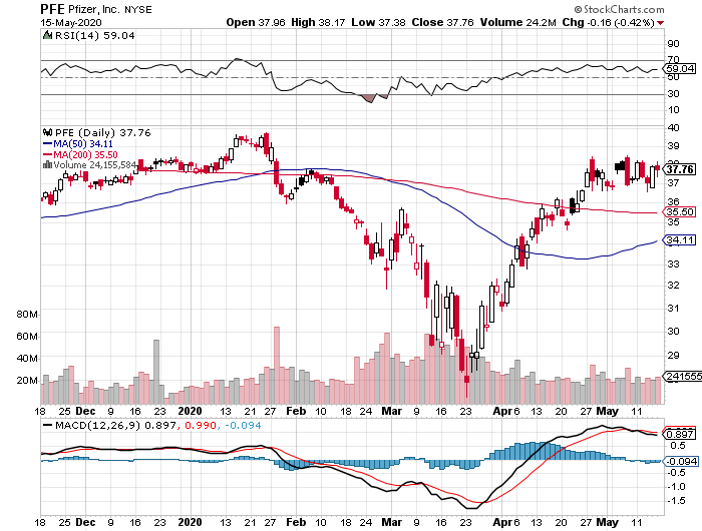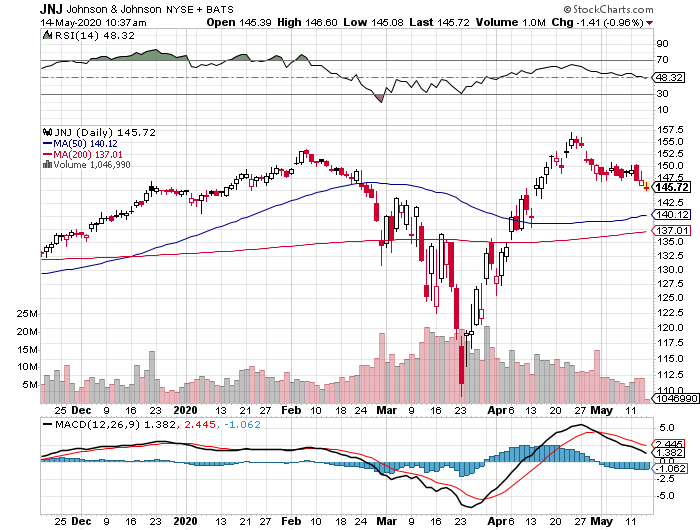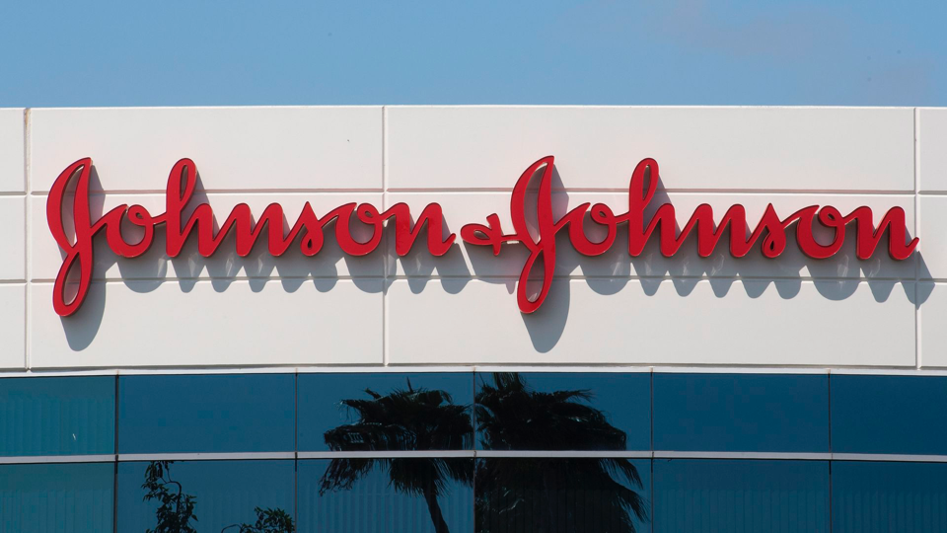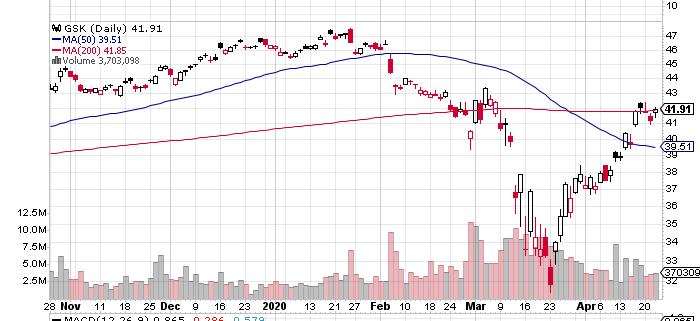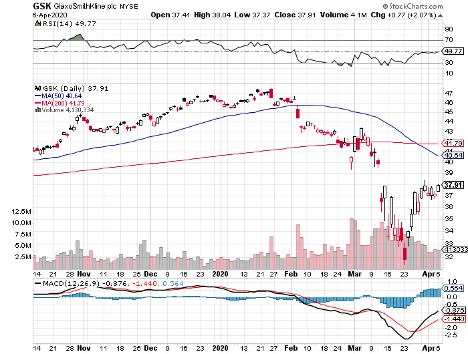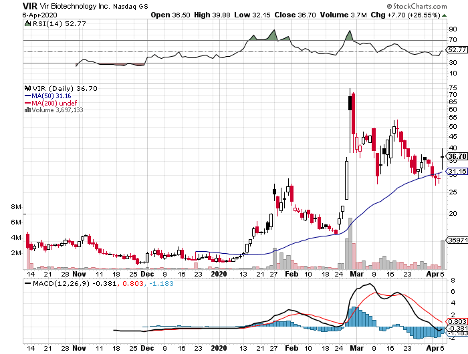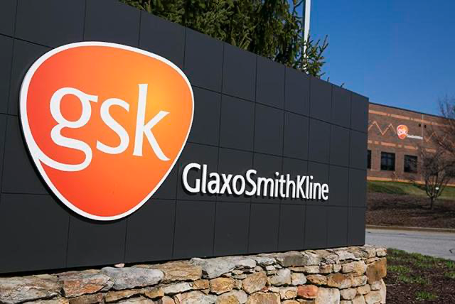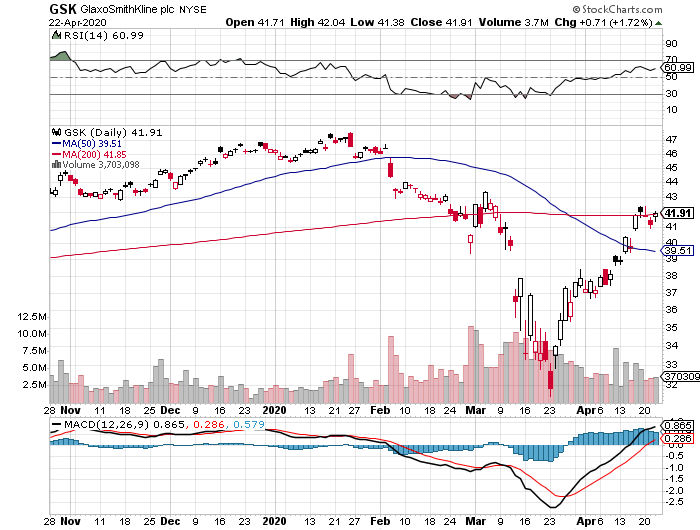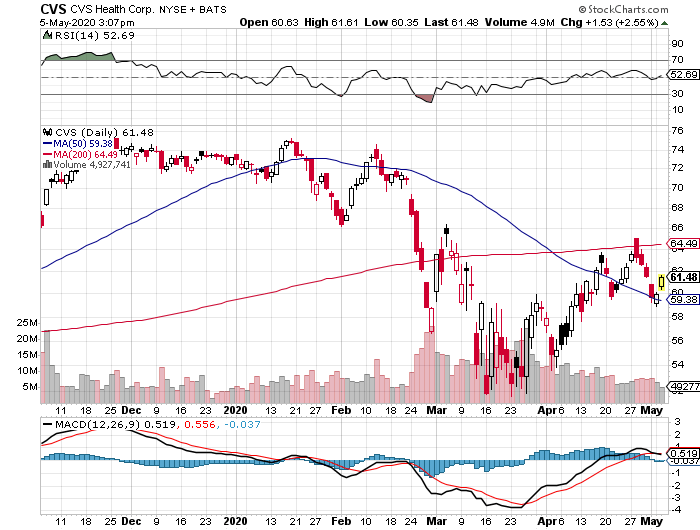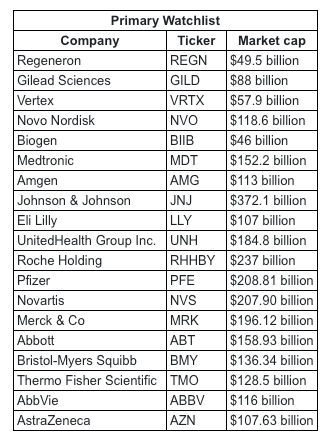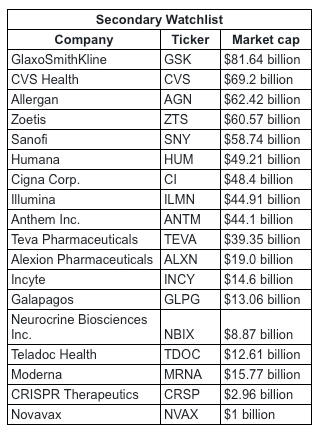Clearly, the long-term solution to this health crisis, and possibly the only hope we have to returning to “normal,” is a safe and effective vaccine.
Companies and health experts around the world have stepped up to that challenge, with investors eagerly anticipating the stocks of the businesses to successfully deliver a vaccine to catapult in value overnight.
This is one of the driving forces behind Pfizer’s (PFE) relentless pursuit of a coronavirus vaccine.
Here’s a quick recap of where Pfizer was before this major announcement.
Pfizer was first recognized as an aggressive player in the vaccine race when the healthcare giant partnered with German biotechnology company BioNtech (BNTX).
After months of working together, Pfizer announced that it aims to produce 10 million to 20 million doses of COVID-19 vaccine by the end of 2020.
So far, Pfizer is testing at least four distinct variations of its vaccine called BNT162. The trials will test roughly 360 individuals, with the study expanding to involve thousands of volunteers if one or two variations of the vaccine indicate progress.
Conclusive data will be available in June or July this year. Meanwhile, Pfizer’s coronavirus vaccine candidate, co-created with BioNtech, is projected to be ready for launch by October.
In an effort to make room for the production of BNT162, Pfizer decided to outsource the production of some of its own branded products to various manufacturers such as Catalent (CTLT).
This move means that instead of paying contract manufacturers to produce millions of doses of a vaccine that might fail to even leave the warehouse, Pfizer has taken it upon itself to produce BNT162 in its own facilities.
According to the company’s estimates, it will cost approximately $150 million to produce BNT162. Since Pfizer is using its own facilities, it could jumpstart the distribution of up to 20 million doses of COVID-19 vaccine even before 2020 ends.
This move to ramp up the manufacture of an experimental drug candidate is a surprising gamble for Pfizer. However, the possibility of having millions of doses of this potential vaccine ready to ship at a moment’s notice could make it a worthwhile risk.
In terms of competition, Pfizer is racing against several biotechnology companies searching for a COVID-19 vaccine in the US and abroad.
One of them is Moderna (MRNA), which has a $19 billion market cap and funding access worth $2.4 billion including government endowment.
Moderna collaborated with Lona (OTC: LZAGY), which is an international chemical manufacturer, to scale up its production power.
Apart from this, smaller biotechnology companies like Inovio Pharmaceuticals (INO) and Novavax (NVAX) are involved in the COVID-19 vaccine race as well.
Inovio is backed by its history of vaccine research on the swine flu outbreak in 2009 and the 2013 avian flu.
Novavax, which has a modest market cap of $82.2 million, received government funding worth $4 million to help the company move forward with clinical trials.
Additional financial support was also sent by the Coalition for Epidemic Preparedness Innovations. In terms of manufacturing, Novavax has been working with Emergent BioSolutions (EBS) to meet production demands.
Outside the US, two of the frontrunners are Chinese companies CanSino Biologics and Sinovac Biotech (SVA).
The stocks of various micro-cap companies have been on the news since the COVID-19 vaccine race started. Several of these smaller firms used their newfound popularity to boost their stock price and generate additional capital to fund their operations.
I think there are several biotechnology and healthcare companies that warrant following. However, there remains a dearth of data on these companies working on the COVID-19 vaccine. Choosing the best stock from these names at this point demands too much guesswork, an investment strategy I have never endorsed.
The harsh reality is that most of these smaller companies will most probably never manage to get a program off the ground and into a conclusive efficacy trial. The main reasons are limited capital, restricted bandwidth, and lack of will to move forward.
Small companies, particularly in the biotechnology and healthcare sectors, typically lack the money and manpower to efficiently run a program without sacrificing the rest of their R&D efforts. For those companies that manage though, the pace will likely be too slow to actually merit a meaningful place in the market.
Investors looking to invest in the surging COVID-19 vaccine space should turn to companies that hold the greatest odds of success. That means larger and more established companies with global testing, regulatory, and manufacturing capacities.
This is not to dissuade anyone from taking a dip into the small-cap companies pool though.
Rather, I would recommend to simply keep these biotechnology companies on your watch list and see how the situation develops. After all, these are decent stocks on their own right.
Nonetheless, it’s still too early to tell how their long-term business models look like outside the search for a coronavirus vaccine.
In comparison, Pfizer has a proven track record of being a great investment. The company has been showing off a decent dividend growth for 10 consecutive years, reporting an annualized dividend worth $1.52 per share.
More importantly, this biotechnology and healthcare company is showing no signs of slowing down anytime soon. In 2019 alone, Pfizer introduced six new drugs on the market and shared that it has 95 more in its pipeline.
Keep in mind as well that Pfizer’s current price of roughly $37 per share -- a far cry from its 52-week high that reached $44.56 -- is significantly lower than the industry average at the moment. For a stock that presents such a wealth of opportunities, Pfizer offers significant value to its investors.

